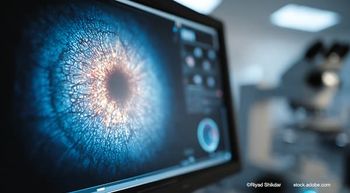
EURETINA celebrates women in retina
The stated core foundation of the Women in Retina program is that “the best innovations happen when diverse people with different perspectives collaborate.” The program will help ESRS harness these perspectives and challenge the way things are done and allow for them to be done better.
A very bright spot in the fast-approaching EURETINA meeting scheduled for September 1-4, 2022, in Hamburg, Germany, is the Women in Retina Program.
The aim
This program, according to the Board of EURETINA, is committed to making the European Society of Retina Specialists (ESRS) an equal-opportunity inclusive environment, nurturing diversity, and educating the wider ophthalmic community by supporting initiatives to remove unfair obstacles to the professional development of promising women working in science and care in retina.
The stated core foundation of the Women in Retina program is that “the best innovations happen when diverse people with different perspectives collaborate.” The program will help ESRS harness these perspectives and challenge the way things are done and allow for them to be done better.
The reality
There is a historic gender imbalance in opportunity in Ophthalmology, according to Dr Anat Loewenstein, General Secretary of EURETINA and the driving force behind the Women in Retina initiative.
For example, over 50% of ophthalmologists are women, but in stark contrast, only 10% hold leadership positions. Another sharp statistic is the while women author over 50% of peer-reviewed manuscripts, but less than 5% of editorials are written by women, and women are underrepresented as referees, editors, and editorial board members.
The survey
To address these inequities, a survey was circulated to the EURETINA global database of male and female members and followers. The results provided an evidence-based understanding of the challenges currently experienced by female retina specialists and scientists and allow ESRS to establish the appropriate supports and resources sought by women to enable them to navigate these challenges.
The survey results are available at the
In commenting on the initiative, Dr Loewenstein explained how early in her career she was awakened to the gender inequities in retina.
“The problem is complex, and there are a lot of societal and cultural factors that contribute to this situation. While we can’t change the world, the bottom line is that there are issues in gender bias within our own profession that need to be addressed. The Women in Retina program is our modest effort to make a positive contribution to rectifying this imbalance,” she stated.
The solutions
Dr Loewenstein explained that the initiative will begin by more actively promoting women in the scientific program of the EURETINA annual congress to ensure fair representation in terms of moderation and invited lectures; and providing annual grants for young retinal specialists and establishing long-term fellowships for women, at least one of which will be laboratory-based for promising research in retina.
EURETINA will start a mentorship program specifically to help members with early career development.
A virtual lounge will facilitate gender-related conversation among participants and host quarterly talks by experts who can assist in professional development and discuss gender-related challenges.
“There is a lot of work to be done, but I think this program represents an excellent opportunity to raise the profile of women in the field of retina, nurture their talents, and give due recognition to them for their contribution,” Dr Loewenstein stated.
In addition to Dr Loewenstein, the committee of leaders include Caroline C.W. Klaver, Patricia Udaondo Mirete, Nicole Eter, EURETINA board members; Dara Conlon, Executive Vice President of EURETINA; Tunde Peto, Professor of Clinical Ophthalmology at Queen's University; Voraporn Chaikitmongkol, Chiang Mai University; and Sei Moon, EURETINA Digital Director.
Newsletter
Get the essential updates shaping the future of pharma manufacturing and compliance—subscribe today to Pharmaceutical Technology and never miss a breakthrough.




























